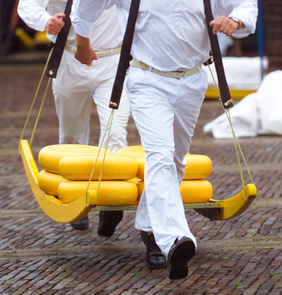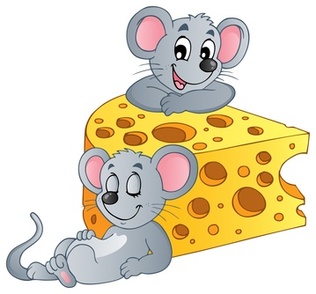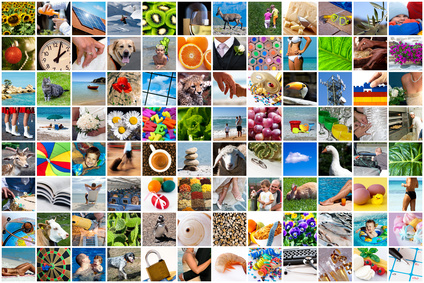If you are reading here, you are a human being and if you are a human being you certainly had experienced and will experience a lot of changes in your life.
I meet a lot of people every day who struggle to deal with change and who wants to know how to teach their children to deal with change.
Adults, children as well as old people are all fighting a huge battle to cope with the changes that life brings us. AND we get scared and overwhelmed in trying to cope with these changes BUT most of us have to hold the pose in order to cope with the peer pressure and other people's remarks about whether we do cope/or don't cope with change. In this process, we even experience more pressure in order to cope with our changes.
I've read a wonderful practical book (including pictures - one of my favorites) "Who moved my cheese?" by Spencer (dad) and Christian (son) Johnson. It's about dealing with the change of new circumstances. The book compare things that are changing in your life with a heap of cheese that is suddenly moved, leaving some mice confused. The story then tells the tale of how the mice deal with this situation.
I meet a lot of people every day who struggle to deal with change and who wants to know how to teach their children to deal with change.
Adults, children as well as old people are all fighting a huge battle to cope with the changes that life brings us. AND we get scared and overwhelmed in trying to cope with these changes BUT most of us have to hold the pose in order to cope with the peer pressure and other people's remarks about whether we do cope/or don't cope with change. In this process, we even experience more pressure in order to cope with our changes.
I've read a wonderful practical book (including pictures - one of my favorites) "Who moved my cheese?" by Spencer (dad) and Christian (son) Johnson. It's about dealing with the change of new circumstances. The book compare things that are changing in your life with a heap of cheese that is suddenly moved, leaving some mice confused. The story then tells the tale of how the mice deal with this situation.
Every person has different parts in his personality, for example:
- noticing change early
- scrambling into action
- denying fear
- withstanding fear
- adapt in time
- see that change can lead to better things.
The moral of the story is that change doesn't mean bad things. Change in this book brought a better life, better cheese that the mice could have ever imagined themselves to have and they got ten times more cheese and more variety than before.
What can your magical cheese be?
Some important lessons that the mice teach us are:
- Know the different parts of your personality. Know your own strong and weak points.
- When you stop being afraid, you will start to feel good.
- Don't cling to the old cheese (your job, school, city). The sooner you will let go of the old cheese, the sooner you will be able to find new cheese.
- See a picture of your new cheese in your head. This picture will help you to find the new cheese.
- Smell the cheese often, so that you will know when it is getting old. This means to be able to stand aside and take a look at yourself and your situation, so that you could make changes if needed and not get stuck in your own old ways of thinking and doing.
- Move with your cheese and enjoy it, which means that life changes daily and you also change daily. So, move out of your safe zone and start to enjoy the new things (there's a big chance that it could be better than your old life!).
- noticing change early
- scrambling into action
- denying fear
- withstanding fear
- adapt in time
- see that change can lead to better things.
The moral of the story is that change doesn't mean bad things. Change in this book brought a better life, better cheese that the mice could have ever imagined themselves to have and they got ten times more cheese and more variety than before.
What can your magical cheese be?
Some important lessons that the mice teach us are:
- Know the different parts of your personality. Know your own strong and weak points.
- When you stop being afraid, you will start to feel good.
- Don't cling to the old cheese (your job, school, city). The sooner you will let go of the old cheese, the sooner you will be able to find new cheese.
- See a picture of your new cheese in your head. This picture will help you to find the new cheese.
- Smell the cheese often, so that you will know when it is getting old. This means to be able to stand aside and take a look at yourself and your situation, so that you could make changes if needed and not get stuck in your own old ways of thinking and doing.
- Move with your cheese and enjoy it, which means that life changes daily and you also change daily. So, move out of your safe zone and start to enjoy the new things (there's a big chance that it could be better than your old life!).
Fun activity (make your own collage)
- Cut out at least ten pictures (use old magazines) that you've got in your head of your new cheese (example if I have to move to a new city I will cut out pictures of a smile; a second picture of me reaching out and talk to new people, a third picture of myself (writing next to it "You can do it!" or "I am proud of myself!").
- Glue the pictures on a carton and make your own collage (it means using a lot of pictures to make your own personal story).
- Write words and/or sentences of motivation next to your pictures.
- Put it on a wall/place where you could see it every day.
- Take at least three minutes every day to look at your picture and imagine yourself doing the actions.
- Make it part of your day to think and re-think your new cheese.
- It will soon become part of your thinking and it will help you to start living these new positive ideas.
- Enjoy your new cheese journey!
- If you want to teach your children how to deal with change, talk to the them about change, what change means, what feelings both they, you and the rest of the family are having. Every family member needs to put his own feelings into words. If your child is still young (under six), use a story to explain to him what's going to happen (for example when you move).
- Teach your child to enjoy new cheese and not to get stuck with the old cheese.
- Glue the pictures on a carton and make your own collage (it means using a lot of pictures to make your own personal story).
- Write words and/or sentences of motivation next to your pictures.
- Put it on a wall/place where you could see it every day.
- Take at least three minutes every day to look at your picture and imagine yourself doing the actions.
- Make it part of your day to think and re-think your new cheese.
- It will soon become part of your thinking and it will help you to start living these new positive ideas.
- Enjoy your new cheese journey!
- If you want to teach your children how to deal with change, talk to the them about change, what change means, what feelings both they, you and the rest of the family are having. Every family member needs to put his own feelings into words. If your child is still young (under six), use a story to explain to him what's going to happen (for example when you move).
- Teach your child to enjoy new cheese and not to get stuck with the old cheese.







 RSS Feed
RSS Feed
